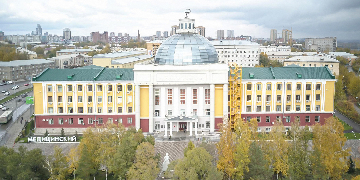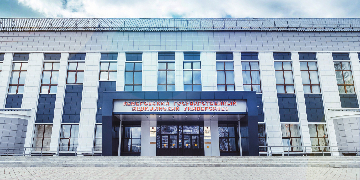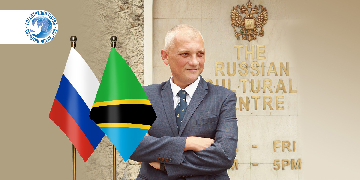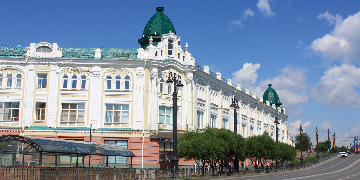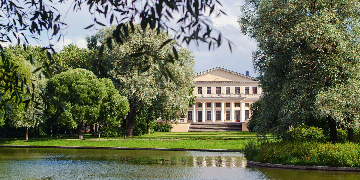The history of Tunisia-Russia interstate cooperation in education and science has lasted for more than 50 years. The Russian Center of Science and Culture in Tunisia was established in 1966, which outlined a direction of humanitarian rapprochement of the two countries. Every year, dozens of Tunisian students came to the USSR to get higher education in a wide variety of knowledge areas. On returning home, these graduates became outstanding doctors, engineers, agronomists, and managers. Yuri Zaitsev, Head of the Rossotrudnichestvo Representative Office in Tunisia talks about the opportunities for Tunisian citizens wishing to study in Russia, support provided by the Russian House in Tunisia, and admission aspects.
Education in Russia for Tunisian Citizens
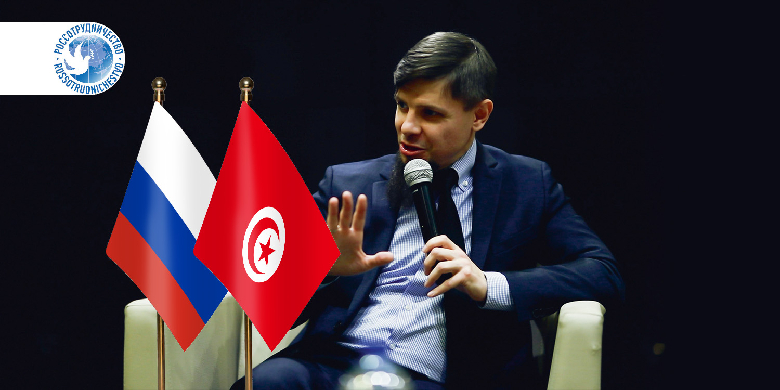

Tunisia – USSR yesterday
Active and ongoing cooperation in the development of education between the USSR and the Republic of Tunisia began when the building of the Russian Center of Science and Culture appeared. At the time, starting from 1971, dozens of Tunisian students were sent to study in the USSR every year. This experience in successful training of highly qualified personnel gave Tunisian citizens a general idea of education in Russia, which is still considered prestigious and popular in Tunisia.
Over the years of bilateral cooperation, Tunisia has developed a group of highly qualified specialists who have earned a degree from Russian and Soviet universities: health professionals, engineers, agronomists, economists, IT specialists, managers, lawyers, international relations specialists, and tourism specialists. Over the last 50 years, graduates of Russian universities have been in high demand in many areas of the rapidly developing economy of Tunisia. According to circumstances, it should come as no surprise that the Tunisian Association of Graduates of Soviet Universities was established in 1986. It has been operating as a non-profit-making organization since 1989.
A notable fact: Tunisia is the only country in North Africa where the Russian language has the status of an official language of supplementary education in secondary school (lyceums). In 2003, the Ministry of Education of the Republic of Tunisia approved the official Russian language curriculum at lyceums. Now Russian is taught at 15 schools in 10 cities, and the number of lyceum students exceeds 1,000. This circumstance considerably increases Tunisia’s interest in education in Russia – many lyceum students apply for the Russian Government quota to continue their education in Russia after finishing secondary school.

Tunisia – Russia today
Today, more than 1,000 citizens of Tunisia are pursuing various majors and fields of study in Russia.
The Russian House in Tunisia (the Russian Center of Science and Culture) makes proactive and focused efforts to inform Tunisian lyceum students about the opportunities to get higher education in Russia. The integrated event program of the Russian House also includes plenty of cultural and educational events. Over the last year, the Russian House staff visited five lyceums offering Russian language courses in three different cities. The presentations about education in Russia, Russian language classes, familiarization with Russian culture and traditions, demonstration lessons, lectures, master classes, joint tours conducted in Russian – here is a non-exhaustive list of activities initiated, held and supported by the Rossotrudnichestvo Representative Office. The lyceum students take an active part in the competitions organized for foreigners and use the services of the library of the Russian House.
There were 40 quota places for Tunisia in the previous selection campaign. Given the growing demand for education in Russia, active efforts of the representative office and support from Rossotrudnichestvo, the quota was increased by 25 places. Following the previous selection campaign, 65 Tunisians at once qualified for tuition-free education at Russian universities.
So, only 16 quota places were allocated for the Republic of Tunisia in 2016. Their number increased to 40 in the 2022/23 academic year, and, taking into account the results of this campaign, the Russian Government allocated 60 places for the citizens of the Republic of Tunisia for the 2024/2025 academic year. The average number of applicants per place in the previous selection campaign was around 4.
Tunisia is the only country in North Africa where the Russian language has the status of an official language of supplementary education in secondary school.
The Russian Government Scholarship (quota)
Most young people strive to get the opportunity to study in Russia for free through government quotas. If applicants did not manage to pass the competitive selection, they have the opportunity to continue their education on a fee-paying basis. At the moment, Tunisia has some private companies providing services to arrange studies in Russia on a contract basis.
The Russian House posts all the information on recruitment within the quota on the pages of its social media and places promotional materials directly at the Russian House in Tunisia. Our colleagues from the Tunisian Association of Graduates of Soviet Universities as well as other Tunisian associations, such as the Russian Heritage and the Tunisian Association of Russian Language and Literature Teachers, play an important part in disseminating reliable information.
After accepting the applications from candidates for the quota, the special commission makes a selection. The selection commission at the Russian House in Tunisia includes:
- the representatives of the Embassy of the Russian Federation in the Republic of Tunisia
- the representatives of official government authorities and associations of the Republic of Tunisia
- the representatives of Russian universities
Candidates are ranked and credit points are given according to the established system, with educational certificates (80% of the overall score) as a main criterion. We also take into account individual achievements based on attached documents (certificates, letters of acknowledgment, letters of recommendation, etc.) – achievements in sports, art and studies, volunteering, proficiency in the Russian language and other foreign languages (20% of the overall score).
Popular fields of study
Traditionally, medical fields of study and specialties are most popular among young people because medical professions are very prestigious and experienced doctors are in demand in all fields of medicine.
In recent years, there has been a considerable increase in demand for the fields of study related to information technology. This can be explained by Tunisian society and economy aiming at gradual digitalization, which requires a great number of highly qualified specialists.
The fields of study in economics and management are still in demand. Many candidates, who studied Russian at lyceums or higher education institutions in Tunisia, often strive to continue studying languages in Russia as well, choosing such fields of study as international relations, foreign studies, oriental studies, and international law.
In the most recent selection campaign, there has been a considerable increase in the number of applications for such fields of study as architecture and design, and candidates have begun to show interest in musical art professions.
One of the key objectives of the Russian House in Tunisia is to support Tunisians who have completed their studies in Russia. Most graduates are successfully employed by local or Russian companies or start practicing medicine or teaching in their home countries, where their degrees earned in Russia definitely help them, being a kind of quality mark.
Nevertheless, despite the prestige of education in Russia, many students need assistance in further employment. The Russian House plans to provide necessary assistance and advisory support to Tunisian graduates of Russian universities.
Rossotrudnichestvo Representative Office in Tunisia, Telegram






